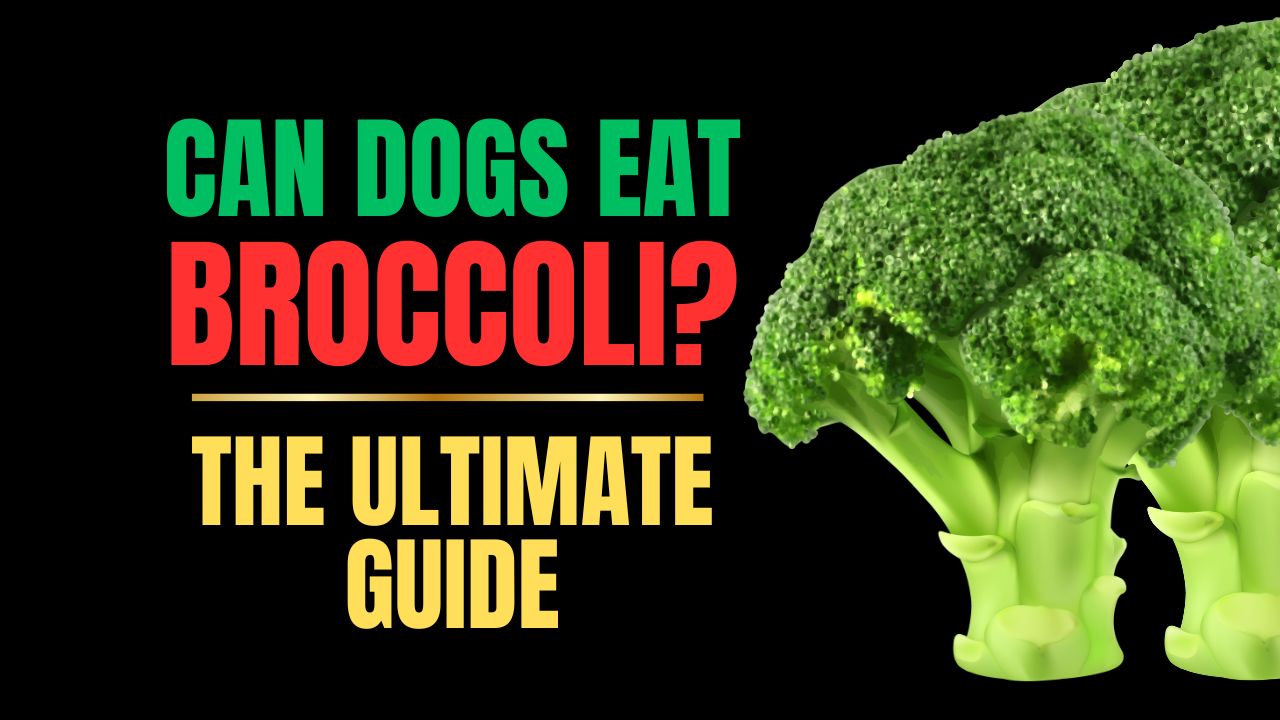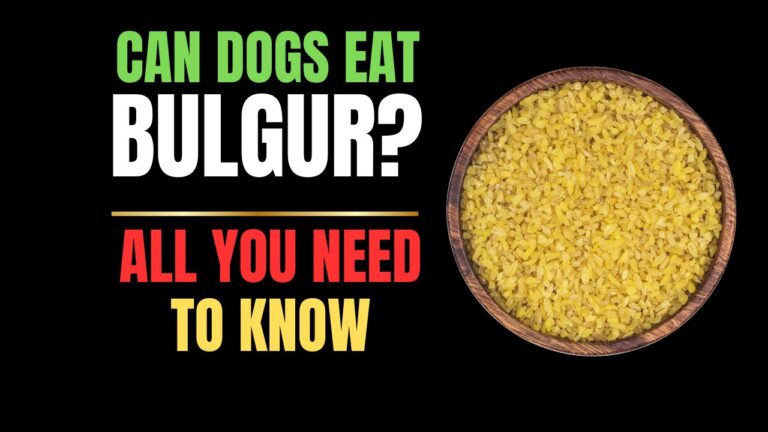
Can Dogs Eat Broccoli?
Broccoli has earned its reputation as a nutritional powerhouse in human diets, packed with vitamins, minerals, and antioxidants. As health-conscious dog owners seek to share these benefits with their pets, many wonder if this cruciferous vegetable is safe for canine consumption. The answer requires careful consideration of both benefits and risks.
Broccoli can be safe for dogs in very limited quantities when prepared properly, but it comes with specific precautions that distinguish it from other vegetables. While it offers impressive nutritional benefits, it also contains compounds that can be problematic in larger amounts.
This comprehensive guide covers everything you need to know about feeding broccoli to your dog, from proper preparation techniques and strict portion control to understanding the unique risks and benefits. Whether you're considering adding broccoli to your dog's diet or simply want to understand the safety considerations, this guide will provide the detailed information you need to make informed decisions.
Introduction
Broccoli can be a safe and nutritious occasional treat for dogs when fed in very small quantities with proper preparation. However, it requires more caution than many other vegetables due to compounds that can cause gastrointestinal irritation in larger amounts.
The Isothiocyanate Consideration
Broccoli contains isothiocyanates, natural compounds that can cause gastric irritation in dogs when consumed in significant quantities.
These compounds are part of what makes broccoli beneficial in small amounts (they have anti-cancer properties) but problematic in larger quantities. This dual nature is why broccoli requires such careful portion control compared to other vegetables.The general veterinary guideline is that broccoli should constitute no more than 10% of a dog's daily food intake to avoid potential issues.The Short Answer
Yes, dogs can eat broccoli in very small amounts. The florets are safe when cooked plain and served in moderation. However, strict portion control is essential, and the stems should be prepared with extra care due to choking hazards.
| Safety Level | Recommended Preparation | Key Considerations |
|---|---|---|
| Limited Safety | Cooked florets in tiny amounts | 10% rule maximum, watch for gastric upset |
| Strict Moderation | Small portions based on dog size | Contains isothiocyanates that can cause issues |
| Introduction | Start with one small floret piece | Monitor closely for digestive sensitivity |
Nutritional Benefits of Broccoli for Dogs
When fed in appropriate amounts, broccoli offers several nutritional benefits, though these must be balanced against the potential risks of overconsumption.
Vitamin Powerhouse
Vitamin C & K
Broccoli is exceptionally rich in vitamin C, which supports immune function, and vitamin K, which is essential for blood clotting and bone health. It also provides significant amounts of folate and vitamin A.
Immune and bone support
Antioxidant Rich
Cancer-Fighting Compounds
Broccoli contains sulforaphane and other antioxidants that have demonstrated anti-cancer properties in studies. These compounds help combat oxidative stress and support cellular health.
Cellular protection
Fiber & Minerals
Digestive Health
The significant fiber content supports healthy digestion, while minerals like potassium and manganese contribute to nerve function, muscle health, and metabolic processes.
Overall wellness
Nutritional Breakdown
Veterinary Perspective
According to veterinary nutritionists, while broccoli offers impressive nutritional benefits, the isothiocyanate content requires careful portion control. These compounds can cause gastric irritation, and in very large quantities, may be toxic.
Most veterinarians recommend that broccoli should not exceed 10% of a dog's daily food intake. The cooking process can help reduce some of the compounds that cause gastric upset, which is why cooked broccoli is generally preferred over raw for canine consumption. For most dogs, the benefits can be obtained through occasional small servings rather than regular inclusion in the diet.Which Parts Are Safe vs Dangerous
Proper preparation is crucial when considering broccoli for your dog, as different parts of the plant carry different risk levels.
Safe Parts
| Part | Safety Level | Preparation Notes |
|---|---|---|
| Florets (Cooked) | Safe in Moderation | Steamed or boiled, no seasonings, tiny amounts |
| Stems (Cooked) | Limited Safety | Peeled, cooked soft, cut very small |
Dangerous Parts
| Part | Risk Level | Potential Dangers |
|---|---|---|
| Leaves | Moderate Risk | Higher concentration of potentially irritating compounds |
| Raw Broccoli | Moderate Risk | More difficult to digest, higher risk of choking |
| Large Stem Pieces | High Risk | Significant choking hazard, difficult to digest |
| Seasoned Broccoli | High Risk | Garlic, onions, salt, or oils can be toxic |
The 10% Rule for Broccoli
Broccoli should never constitute more than 10% of your dog's total daily food intake. This is because broccoli contains isothiocyanates, which can cause gastric irritation in larger quantities.
For a medium-sized dog eating 2 cups of food daily, this means no more than 3 tablespoons of broccoli. Exceeding this amount regularly can lead to digestive upset and, in extreme cases, more serious health issues. This makes broccoli different from many other vegetables that can be fed in larger quantities.Safe Preparation Checklist
- Wash broccoli thoroughly to remove pesticides and dirt
- Separate florets from stems and leaves
- Cook broccoli by steaming or boiling until tender
- Never add salt, oils, or seasonings
- Cut florets into small, bite-sized pieces
- For stems: peel tough outer layer and cook until very soft
- Always serve in amounts representing less than 10% of daily food
- Introduce gradually to assess tolerance
How Much Broccoli Can Your Dog Eat?
Due to the specific compounds in broccoli, portion control is more critical than with many other vegetables.
Portion Size by Dog Weight
| Dog Weight | Recommended Portion | Frequency |
|---|---|---|
| 5-10 lbs | 1-2 small floret pieces | 1-2 times per week maximum |
| 11-25 lbs | 1-2 tablespoons chopped | 1-2 times per week maximum |
| 26-50 lbs | 2-3 tablespoons chopped | 1-2 times per week maximum |
| 51-100 lbs | 1/4 cup chopped | 1-2 times per week maximum |
| 100+ lbs | 1/3 cup chopped | 1-2 times per week maximum |
The Critical 10% Rule
Broccoli should never exceed 10% of your dog's total daily caloric intake. This is significantly more restrictive than the general treat rule because of broccoli's specific compounds. Calculate 10% of your dog's daily food (by volume, not just calories) and ensure broccoli stays well below this threshold.
Special Considerations
Puppies should generally avoid broccoli due to their developing digestive systems and specific nutritional needs for growth. Senior dogs or those with dental issues might appreciate the soft texture of cooked broccoli, but those with existing digestive issues should avoid it. Dogs with thyroid conditions may need to avoid broccoli altogether as it contains goitrogens that can interfere with thyroid function. Always consult your veterinarian before introducing broccoli if your dog has any health conditions.
Calculating Your Dog's Broccoli Allowance
To determine safe broccoli portions:
- Determine your dog's total daily food intake (cups or grams)
- Calculate 10% of this amount - this is your maximum broccoli allowance
- Remember that broccoli contains about 31 calories per cup
- Start with even smaller amounts than the calculated maximum
- Always err on the side of smaller portions with broccoli
Step-by-Step: Safest Ways to Serve Broccoli
Given the precautions necessary with broccoli, there are specific safe methods for preparation and serving.
Steamed Florets (Recommended)
Steaming is the preferred cooking method as it preserves nutrients while making broccoli easier to digest. Steam florets until tender but not mushy, then chop into small pieces appropriate for your dog's size. This method helps reduce some of the compounds that can cause gastric upset.
Mashed Broccoli Mix
For dogs with sensitive digestion or dental issues, steam broccoli until very soft, then mash with a fork and mix with their regular food. This ensures thorough cooking and makes it easier to digest while distributing the small amount throughout their meal.
Frozen Broccoli Treats (Limited Use)
Some owners offer tiny frozen steamed broccoli pieces as occasional treats, but this should be done with extreme caution. The freezing doesn't reduce the isothiocyanate content, and frozen pieces can be hard on teeth. If attempting this, use pieces no larger than a pea for medium dogs.
Methods to Avoid
Avoid raw broccoli (harder to digest), roasted broccoli (often contains oils and seasonings), broccoli with cheese sauce (dairy and fat concerns), and any preparation with garlic, onions, or salt. These methods significantly increase the risks associated with broccoli.
Important Safety Notes
Always supervise your dog when they're eating broccoli or any new food. Some dogs may be more sensitive to the compounds in broccoli than others. Watch closely for signs of gastric upset including gas, bloating, or changes in stool. The fibrous nature of broccoli means it should be thoroughly cooked to aid digestion. Remember that many dogs may not find broccoli appealing due to its strong flavor and smell - never force your dog to eat it if they show disinterest.
Recipes American Dog Owners Love
These recipes use minimal amounts of broccoli combined with other dog-safe ingredients for balanced treats.
Broccoli & Carrot Mash
This recipe combines a small amount of broccoli with more easily digestible carrots.
- Ingredients: 2 tablespoons steamed broccoli, 1/4 cup cooked carrots, 1 tablespoon plain yogurt
- Instructions: Mash all ingredients together until smooth. Serve as a kibble topper or alone as a small treat.
- Serving size: 1-2 tablespoons depending on dog size
Chicken & Broccoli Training Bits
Protein-packed treats with minimal broccoli content for occasional training use.
- Ingredients: 1/2 cup cooked chicken, 1 tablespoon steamed broccoli, 1/4 cup oat flour, 1 egg
- Instructions: Blend all ingredients in food processor. Form into tiny balls. Bake at 300°F for 15-20 minutes until firm.
- Serving suggestion: Limit to 2-3 treats per day
Broccoli Pumpkin Bites
Soft treats that combine broccoli's nutrients with pumpkin's digestive benefits.
- Ingredients: 1/4 cup pumpkin puree, 1 tablespoon steamed mashed broccoli, 1/2 cup whole wheat flour, 1/4 cup water
- Instructions: Mix ingredients to form a dough. Roll out and cut into small shapes. Bake at 350°F for 20-25 minutes.
- Note: Store in airtight container in refrigerator
Recipe Safety Tips
When preparing homemade dog treats with broccoli, always use minimal amounts and ensure it's thoroughly cooked. Never use broccoli leaves or raw broccoli. Avoid anything containing xylitol, chocolate, grapes, raisins, onions, garlic, or excessive salt.
While the recipes above use safe quantities, remember that each dog is unique. Some dogs may be more sensitive to broccoli than others. Introduce new foods gradually and watch for any signs of digestive upset. Always consult your veterinarian if you have concerns about specific ingredients for your dog.Risks & Warning Signs
While broccoli can be safe in small amounts, there are specific risks to be aware of and warning signs to watch for carefully.
Digestive Issues
Gas & Gastric Irritation
Broccoli contains compounds that can cause gas, bloating, and stomach upset in dogs, particularly when fed in excessive quantities or to sensitive individuals.
Common issue
Isothiocyanate Toxicity
In Large Quantities
When broccoli constitutes more than 25% of daily food intake, the isothiocyanates can become toxic, potentially causing severe gastric distress.
Rare but serious
Choking Hazard
Stems & Large Pieces
The tough stems and large floret pieces can pose significant choking risks, especially for dogs that gulp their food without proper chewing.
Preparation dependent
Warning Signs to Watch For
| Symptom | Possible Cause | Action to Take |
|---|---|---|
| Gas or Bloating | Too much broccoli or sensitivity | Discontinue broccoli, monitor closely |
| Vomiting or Diarrhea | Gastric irritation from broccoli | Discontinue immediately, offer bland diet |
| Lethargy or Weakness | Possible toxicity or severe reaction | Seek veterinary care immediately |
| Choking | Improperly sized pieces | Learn canine CPR, seek emergency care if needed |
When to Contact Your Veterinarian
Contact your veterinarian immediately if your dog shows signs of severe digestive distress, appears in pain, shows symptoms of potential toxicity (lethargy, weakness, repeated vomiting), or if you suspect they've consumed a large quantity of broccoli. While broccoli isn't highly toxic in small amounts, the complications from overconsumption can be serious. It's always better to err on the side of caution with broccoli due to its specific compound content.
Store-Bought Broccoli Options (USA 2025 Favorites)
For dog owners interested in broccoli-containing products, select commercial options use safe formulations with appropriate broccoli quantities.
Freeze-Dried Options
| Brand & Product | Key Features | Where to Buy |
|---|---|---|
| Stella & Chewy's Freeze-Dried Veggie Mix | Minimal broccoli content, mixed with other veggies | Chewy, Amazon, pet specialty stores |
| Whole Life Pet Freeze-Dried Broccoli | Single ingredient, use very sparingly | Select independent pet stores |
Fresh & Frozen Options
| Brand & Product | Key Features | Where to Buy |
|---|---|---|
| Birds Eye Steamfresh Frozen | Plain frozen broccoli, no additives | Grocery stores nationwide |
| Fresh Conventional Broccoli | Wash thoroughly, cook before serving | All grocery stores, farmers markets |
Reading Labels for Broccoli Products
When selecting commercial broccoli products, pay close attention to the ingredient list and broccoli's position in it. For treats where broccoli isn't the main ingredient, it's generally safer. Avoid any products with broccoli listed in the first few ingredients for regular feeding. For fresh or frozen broccoli, choose plain varieties without sauces, seasonings, or coatings. Remember that even with commercial products containing small amounts of broccoli, portion control remains crucial due to the specific compounds in broccoli.
Frequently Asked Questions
It's not recommended to feed dogs raw broccoli. Raw broccoli is more difficult for dogs to digest and contains higher levels of the compounds that can cause gastric irritation. Cooking broccoli helps break down some of these compounds and makes the vegetable easier to digest. Additionally, raw broccoli poses a higher choking risk, especially the stems. If you do choose to offer raw broccoli, it should be in even smaller quantities than cooked broccoli and must be cut into very small, manageable pieces. However, most veterinarians recommend sticking to cooked broccoli for canine consumption.
Broccoli stems can be safe for dogs if prepared properly, but they require extra caution. The stems are fibrous and tough, posing a significant choking hazard if not prepared correctly.
To safely prepare broccoli stems for dogs: first, peel the tough outer layer completely; second, cook until very soft (much longer than florets); third, cut into very small pieces appropriate for your dog's size. Even with proper preparation, stems should be given in even smaller quantities than florets due to their density and fiber content. Many owners choose to avoid stems altogether to minimize risks.If your dog has consumed a large amount of broccoli (more than 10% of their daily food intake), monitor them closely for the next 24-48 hours. Watch for signs of gastrointestinal distress including vomiting, diarrhea, gas, bloating, or abdominal pain. Provide plenty of fresh water and consider offering a bland diet for their next meal. Contact your veterinarian immediately if you notice any concerning symptoms, if your dog appears in pain, or if they consumed a very large quantity (approaching 25% of daily food intake). The veterinarian may recommend monitoring, inducing vomiting, or other interventions depending on the amount consumed and symptoms presented.
It's generally best to avoid giving broccoli to puppies. Puppies have developing digestive systems that are more sensitive to the compounds in broccoli. Their nutritional needs are also very specific for growth and development, and the potential gastric upset from broccoli could interfere with their feeding schedule and nutrient absorption. Additionally, puppies are more susceptible to choking hazards. If you do choose to offer a tiny amount to an older puppy, wait until they're at least 6 months old, cook it thoroughly, mash it completely, and limit it to a teaspoon-sized amount for medium breeds. Always monitor closely for any adverse reactions.
Green beans are generally a safer and more versatile option for dogs than broccoli. While broccoli offers impressive nutrients, it requires strict portion control due to its compound content. Green beans can be fed in larger quantities, are less likely to cause digestive upset, and are excellent for weight management.
Broccoli might be preferred for its specific nutrient profile in very small, occasional amounts, but for regular vegetable supplementation, green beans, carrots, or green beans are typically better choices. Many veterinarians recommend green beans over broccoli for most dogs due to the lower risk profile and greater flexibility in feeding amounts.Yes, several categories of dogs should avoid broccoli completely. Dogs with chronic digestive issues or sensitive stomachs should not eat broccoli as it's likely to cause upset. Dogs with thyroid conditions should avoid broccoli due to its goitrogen content, which can interfere with thyroid function. Dogs that have had pancreatitis or are prone to digestive issues should avoid broccoli.
Puppies and very small breed dogs may be more susceptible to the effects of the compounds in broccoli. Additionally, any dog that has had a previous negative reaction to broccoli should avoid it in the future. Always consult with your veterinarian before introducing broccoli if your dog has any existing health conditions.No, you should not feed your dog broccoli every day. Even in small amounts, daily broccoli consumption increases the risk of cumulative effects from the compounds it contains. Most veterinarians recommend limiting broccoli to 1-2 times per week maximum, and even then in very small quantities.
The 10% rule should be strictly followed, meaning broccoli should never constitute more than 10% of your dog's daily food intake. For most dogs, occasional small servings (once weekly or less) are sufficient to provide any potential benefits without significantly increasing risks. There are many other vegetables that can be fed more regularly and in larger quantities if you're looking for daily vegetable supplementation.Free Printable "Safe Vegetables for Dogs" Chart
To help you quickly reference which vegetables are safe for your dog, we've created this comprehensive chart that includes broccoli and other common vegetables with their specific precautions.
How to Use This Chart
This chart provides a quick reference for which vegetables are safe, which require special precautions, and which should be avoided. You can print it and keep it on your refrigerator or in your pet care folder for easy reference when shopping for groceries or preparing vegetable treats for your dog.
Safe Vegetables for Dogs Reference Chart
| Vegetable | Safety Level | Preparation Notes |
|---|---|---|
| Broccoli | Limited Safety | Cooked florets only, less than 10% of diet |
| Carrots | Very Safe | Raw or cooked, excellent for dental health |
| Celery | Safe | Cut into small pieces, can be stringy |
| Cucumbers | Very Safe | Low calorie, high hydration, cut appropriately |
| Green Beans | Very Safe | Excellent for weight loss, raw or cooked |
| Peas | Safe | Fresh or frozen, no canned with salt |
| Potatoes | Cooked Only | Never raw, cooked plain without additives |
| Pumpkin | Very Safe | Cooked, plain, excellent for digestion |
| Spinach | Limited | Small amounts, contains oxalates |
| Sweet Potatoes | Very Safe | Cooked, plain, excellent nutrient source |
| Zucchini | Very Safe | Raw or cooked, similar to cucumber |
| Onions | Dangerous | Toxic, can cause hemolytic anemia |
| Garlic | Dangerous | Toxic, even in small amounts |
| Mushrooms | Avoid | Only specific store-bought types, avoid wild |
Conclusion: Final Verdict on Broccoli for Dogs
Broccoli can be offered to dogs in very limited quantities with proper preparation, but it should be considered an occasional treat rather than a regular dietary component. The impressive nutritional benefits must be carefully weighed against the potential risks from its specific compound content.
Remember the critical safety rules: always cook broccoli thoroughly, serve only the florets in tiny amounts, never exceed 10% of your dog's daily food intake, and limit frequency to 1-2 times per week maximum. Broccoli is not appropriate for many dogs - those with digestive sensitivities, thyroid issues, or specific health conditions should avoid it entirely.
When considering broccoli for your dog, the potential benefits of its nutrient profile must be balanced against the very real risks of gastric irritation and the strict portion requirements. For most dogs, there are safer, more flexible vegetable options available that don't carry the same concerns.
Always consult with your veterinarian about incorporating new foods into your dog's diet, especially when those foods come with significant precautions like broccoli. With extreme care and moderation, broccoli can be an occasional treat, but for most dogs and owners, other vegetables offer similar benefits with fewer risks.
We'd love to hear about your experiences with dogs and broccoli! Share your stories or questions in the comments below or tag us on social media.
In the Spotlight
About the Author
Megan Sprinkle
Author
Dr. Megan Sprinkle, DVM, DACVIM (Nutrition) — Veterinarian Nutritionist, Consultant, and Podcaster passionate about helping dogs thrive through science-based nutrition. Auburn University alumna.











